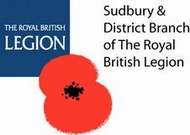|
7375 2nd Battalion, Suffolk Regiment
(‘L/Cpl’ in Suffolk Regiment, Soldiers died in the Great War)
Edward Fish was born in 1889 in Sudbury, one of nine surviving children of Thomas and Jane Louisa Fish. His father was a railway porter and the family lived at 27 Station Road before later moving to 1 Wellington Cottage in Girling Street. Edward was a member of the Boys Brigade where he was a bugler.
Prior to enlisting as a regular soldier Edward was employed as a butcher. He enlisted to serve with the 1st Battalion Suffolk Regiment. In 1911 he was stationed at Mustapha Pasha Barracks in Alexandria, Egypt. When war was declared Edward was with the battalion in Khartoum in the Sudan. He first served in France on 16 January 1915 when the battalion landed at Le Havre. He saw action in Belgium including the Second Battle of Ypres where the first gas attacks were launched by the Germans on 22 April 1915. He was twice invalided home with neuritis.
It is not known when he transferred to the 2nd Battalion which formed part of 76th Brigade, 3rd Division. In 1917 the battalion saw action at the Third Battle of Ypres (also known as the Battle of Passchendaele) at the battles of Menin Road (20 – 25 September) and Polygon Wood (26 September – 3 October).
His mother received a letter dated 29 September 1917 from the Assistant Matron at the No.14 General Hospital at Wimereux: ‘I very much regret having to tell you that your son died in this hospital on 28 September. He was admitted about 7am and died a little after midday. He was badly wounded in the head and was unconscious on admission and passed away without regaining consciousness. It will comfort you to know that he passed away most peacefully and was not conscious of any pain.’
Edward died of wounds aged 29 on 28 September 1917 and lies buried in Wimereux Communal Cemetery, Pas de Calais, France. A Cross of Remembrance was laid by his grave in April 2007.
Edward was awarded the 1914-15 Star, British War Medal and Victory Medal.
Wimereux was an important hospital base and three other Sudbury men are also buried in this cemetery. They are buried not far from Lt. Colonel John McCrae who wrote ‘In Flanders Fields’ and died in 1918.
Back to Roll of Honour
|




